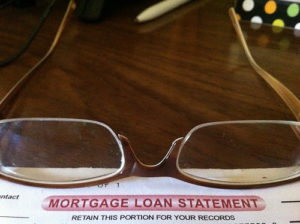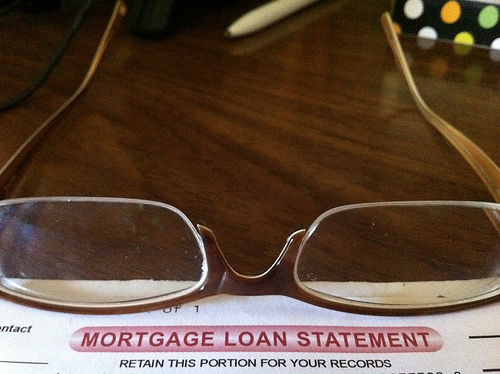 When the economy in the United States started to take a turn for the worse in 2008, the housing industry was at the forefront of the problem. Being a bit more specific, it was the mortgage industry that took down a good amount of once-profitable banks, throwing the whole housing industry into turmoil. But how could one industry knock down the strongest economy in the world?
When the economy in the United States started to take a turn for the worse in 2008, the housing industry was at the forefront of the problem. Being a bit more specific, it was the mortgage industry that took down a good amount of once-profitable banks, throwing the whole housing industry into turmoil. But how could one industry knock down the strongest economy in the world?
Cause of the Problem
The simple answer would be greed. Both lenders and homebuyers were greedy during the housing boom, as banks often lent money to those who could not afford the monthly payments. Banks and the media sold the idea of the American dream to homebuyers and approved those same people for amounts that were much higher than they truly could afford. In turn, foreclosures started to pile up at an alarming rate until the banking industry could no longer afford the new amount of failed mortgages.
The good thing about history is that people can learn from the mistakes of those before them and hopefully not make the same ones again. Those who are looking to purchase a home, now that the market is starting to rebound, need to really sit down and analyze their budget to truly make sure that a new mortgage payment is within reason. But there is more to afford a new home than just the amount of the mortgage.
How Banks Qualify a Lender
Banks use something called a debt-to-income ratio to determine how much of a monthly mortgage payment someone can afford. The ratio takes all of the potential homebuyers’ secure and unsecured debt, such as credit cards, auto loans, and personal loans, and adds up the monthly payments on those. Then, the lender takes the total monthly income of the homebuyer to come up with a debt-to-income ratio. If someone’s expenses were $300 from an auto loan, $100 in credit card payments, and $75 for a personal loan, the total expenses would be $475. For this example, we will use an income of $4,000 a month, so the ratio would be 475 to 4000, or about 12 percent.
Most banks want the homebuyer to stay under 36 percent, including the new home mortgage. FHA loans, or Federal Housing Association loans, will stretch the percentage to 41 percent; however, they require the borrower to take out additional mortgage insurance on the loan. So, in the scenario above, that homebuyer could qualify for a payment up to around $1,000 a month, since that would bring the debt-to-income ratio to around 36 percent.
Hidden Costs in Owning a Home
Even though a person may qualify for a mortgage of a certain amount, that doesn’t always mean that they should max out the amount they were approved for. Besides the mortgage payment, a homebuyer has a lot more to consider when purchasing a home. First, they will have to purchase homeowner’s insurance, raising the cost immediately. Also, utilities may be more expensive at the new home compared to the old one, especially if the home is larger. Plus, if they are renting now, they may not have to pay all the utilities, but if they pay for a home, all the utilities will be their responsibility. Finally, a new home buyer needs to understand that the new home may have large, unexpected repair bills like a leaky roof or foundation. If they are smart they will have the problem fixed the right way by a pro like Trident Contracting and it can put a strain on the budget unless they are prepared for it.
If a homebuyer truly wants to make a smart decision to avoid foreclosure, they should make a budget and come to a number they are comfortable with before even being approved by a lender. Then, as long as the lender approves the buyer for the predetermined payment, the homebuyer will be more comfortable knowing they can afford the payment. The main point for them to remember is to stick to their budget and not get caught up in the emotions of finding the “perfect” house and overspending.
Owning a home is still the American dream, and it is still within grasp for those who make wise decisions with their money. A buyer just needs to be smart and realize what they can afford before they jump into owning a home. When buying a home, the buyer just needs to make a conscientious, calculated decision, and they will be able to enjoy their home for years to come.


Leave a Reply